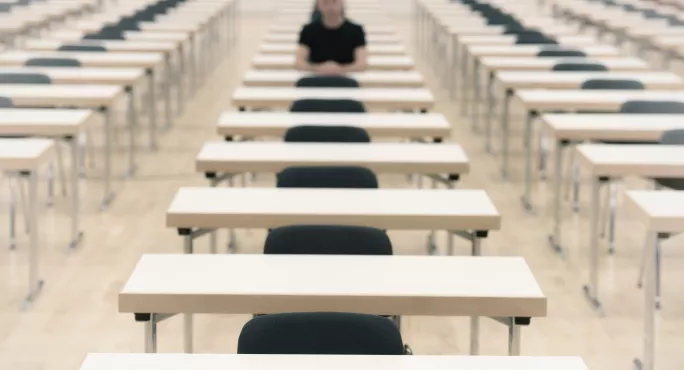With education coming to terms with another national lockdown in England, this week has also seen additional challenges for further education with the completion of the November GCSE exam series. With some colleges entering more than 800 students, it has been a period of renewed challenge for the post-16 sector and, against a backdrop of significant increases in entries (more than 20 colleges entered 500 students or more), many colleges have had to move lessons online just to accommodate the exams. So, how was it?
With practitioners working hard to provide resources throughout lockdown and over the summer, colleges also supplemented this with additional and online work alongside September and October lessons (as well as the usual November revision sessions). Though this additional workload had placed pressure on practitioners, many felt it worthwhile to support students.
However, the additional work (completed entirely online for those in local lockdown), coupled with the much-publicised mental health and wellbeing challenges felt by both students and teachers, wasn’t always enough to help students "close the gap". Many students shared with practitioners that they felt they needed more time to prepare owing to periods of self-isolation or restrictions imposed by local tier limits and lockdowns. Many also said they would have preferred the exams to happen later in the year.
GCSE resits: 20 colleges will see cohorts of over 500
Association of Colleges: November exams 'pose public health risk'
GCSEs: Why we should hold a second exam series in July
A lack of clarity from Ofqual and the DfE
Beset with challenges from the beginning, it has been clear that students have been greatly impacted by the lack of clarity around the exams from Ofqual and the Department for Education. Many students have reported that they are not worried about their results as they will "just sit the next exams in January". Some withdrew from exams at the last minute (or didn’t attend at all) having admitted they didn’t feel prepared, and others still suddenly arrived at exam halls having suddenly decided they would like to sit the exam.
With workload increasing for students and for practitioners, there was also an additional expectation from some parents and carers, who felt that intervention sessions would begin as soon as students returned to college. When this wasn’t always possible, they too felt the pressure of the exams, with some experiencing feeling as if they had let down their child by not providing support at home or extra tutoring. Some students shared that they felt guilty about letting their parents down by not achieving a grade 4 in the summer, and said this had caused issues at home.
This is without taking into consideration the usual challenges that follow the November exam series. Typically, student attendance in GCSE English and maths drops markedly after exams, with many students either believing they have passed (and so not needing to attend) or feeling dejected after the exam and then struggling to find the motivation to attend lessons (reinforcing the apathy and feelings of failure they experienced after leaving school).
Hopefully, catch-up-funded intervention sessions will go some way to supporting disengaged English and maths students for the remainder of the year. Though the funding was welcomed by all parties, and will clearly benefit many students, there is also recognition that much more is needed. Many students still require routers, laptops and other tech, as well as specialist software and additional arrangements for students with special educational needs.
The impact on mental health
With the mental health and wellbeing challenges that students achieving a grade 3 or below will face in January, now is also the time to invest in resilience and wellbeing support in further education. Entering another lockdown after the November exam (and missing six months of face-to-face teaching in between) and after the centre-assessed grading (CAG) process, many students said they may disengage with education entirely as a result of their experiences in 2020.
Some of these issues were, of course, identified well before the series was announced, and as a result, many felt that a postponement of the November series was in students' best interests (at least until a clear strategy could be formulated around how they would take place in a "Covid-world"). With a January series occurring in Northern Ireland, and U-turns around schools, colleges and education in general, only time will tell if this becomes a reality.
We survived it, but there is the lingering question of whether the November series should have taken place at all.





